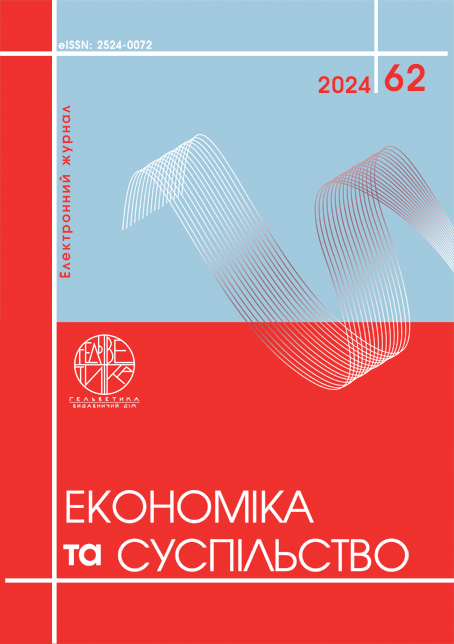MECHANISMS FOR ACTIVATING INTERNATIONAL ECONOMIC RELATIONS
Abstract
This article is devoted to examining the mechanisms that facilitate the activation of international economic relations in the context of contemporary security challenges. It is argued that the essence of these activation mechanisms lies in a series of strategies and methods aimed at increasing and enhancing international trade, investment, financial exchange, and other forms of economic interaction between countries. These mechanisms may include political, economic, legal, and social instruments. The significance of studying these mechanisms as a key aspect for understanding and forecasting the dynamics of international economic processes in a global context is demonstrated. The authors argue that understanding these mechanisms allows for the development of effective strategies to promote international cooperation among countries and ensure sustainable economic growth in the complex conditions of the modern world. The article analyzes key mechanisms for activating international economic relations, such as market opening and trade liberalization, free trade agreements and economic integration, attracting foreign investment, infrastructure development, export support, international economic diplomacy, the development of digital economy and e-commerce, regulatory and legal frameworks, social responsibility, and sustainable development. The authors provide specific examples of successful implementation of these mechanisms, which demonstrate their effectiveness and importance for international economic cooperation. The article also highlights the importance of adapting mechanisms to contemporary security challenges, such as global crises and conflicts, pandemics, and climate change. Strategies for ensuring the stability of international economic relations in changing conditions are discussed. Attention is also drawn to the significance of innovative technologies and their impact on the modernization of economic processes. The article presents a comprehensive approach to understanding and applying the mechanisms for activating international economic relations in the context of contemporary geopolitical and economic realities.
References
Winters L., McCulloch N., McKay A. (2004). Trade Liberalization and Poverty: The Evidence So Far. Journal of Economic Literature, 42(1). Available at https://doi.org/10.1257/002205104773558056.
Siddiqui K. (2016). International Trade, WTO and Economic Development. World Review of Political Economy, 7(4). Available at https://doi.org/10.13169/WORLREVIPOLIECON.7.4.0424.
Maggi G., Ossa R. (2020). The Political Economy of Deep Integration. NBER Working Paper Series. Available at https://doi.org/10.3386/w28190.
Lopez O. D., Carvajal A. (2020). The Trade Effects of Regional Agreements and Economic Integration Processes in Europe, South America, and North America. Available at https://doi.org/10.5354/0719-9368.2020.57980.
Jensen Nathan M. (2003). Democratic Governance and Multinational Corporations: Political Regimes and Inflows of Foreign Direct Investment. International Organization. Available at https://doi.org/10.1017/S0020818303573040.
Harding Torfinn, Javorcik B. (2012). Foreign Direct Investment and Export Upgrading. Review of Economics and Statistics. Available at https://doi.org/10.1162/REST_a_00226.
Woolcock S., Bayne N. (2011). The New Economic Diplomacy: Decision-Making and Negotiation in International Economic Relations. Available at https://doi.org/10.4324/9781315555195.
Farrell H., Newman A. L. (2010). Making global markets: Historical institutionalism in international political economy. Review of International Political Economy. Available at https://doi.org/10.1080/09692291003723672.
Marginson P. (2016). Governing Work and Employment Relations in an Internationalized Economy. ILR Review. Available at https://doi.org/10.1177/0019793916654891.

This work is licensed under a Creative Commons Attribution 4.0 International License.


